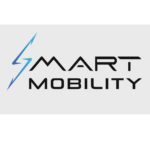South Korea’s premier chemical producer, LG Chem Ltd., has taken a significant leap in the electric vehicle (EV) battery market by initiating the construction of its first-ever cathode plant in the United States. Located in Clarksville, Tennessee, this facility is set to become the largest of its kind in the third-largest EV market globally.
The groundbreaking ceremony on Tuesday marked a major milestone in LG Chem’s ambitious $3.2 billion investment plan, announced last November in collaboration with the US state government. The plant, sprawling over 1.7 million square meters, is strategically positioned near key customers and LG’s battery joint venture with General Motors, Ultium Cells LLC.
LG Chem aims to invest approximately 2 trillion won ($1.6 billion) in the first phase, targeting an annual production capacity of 60,000 tons by 2026. This output is expected to power around 600,000 EVs, each with a range of 500 kilometers per charge. The focus will be on mass-producing nickel, cobalt, manganese, and aluminum (NCMA) cathodes.
The strategic location of the plant provides a logistical advantage, as pointed out by LG Chem CEO Shin Hak-cheol. Most of the company’s key customers are within a 500 to 600-kilometer radius, offering a significant operational benefit.
This project is not just about capacity expansion; it’s also tailored to leverage the US Inflation Reduction Act (IRA). LG Chem plans to use minerals and precursors from nations with US free trade agreements to qualify for tax incentives under the IRA. The Tennessee plant is set to procure precursors from Korea Precursor Company (KPC) in Ulsan, Korea, ensuring compliance with IRA stipulations.
Furthermore, the plant aligns with LG Chem’s broader strategy to boost its battery materials sales to 30 trillion won by 2030. This ambitious target involves diversifying its customer base beyond its subsidiary LG Energy Solution. Despite a recent slowdown in global EV demand, CEO Shin remains optimistic, citing an annual growth rate in the EV market still exceeding 20%.
The Tennessee cathode plant embodies LG Chem’s commitment to sustainable and efficient production. Planned as a smart factory, it will operate entirely on renewable energy sources, including solar and hydropower. This state-of-the-art facility represents a significant step forward in LG Chem’s journey to become a dominant player in the global battery materials market, contributing to the burgeoning EV industry.





